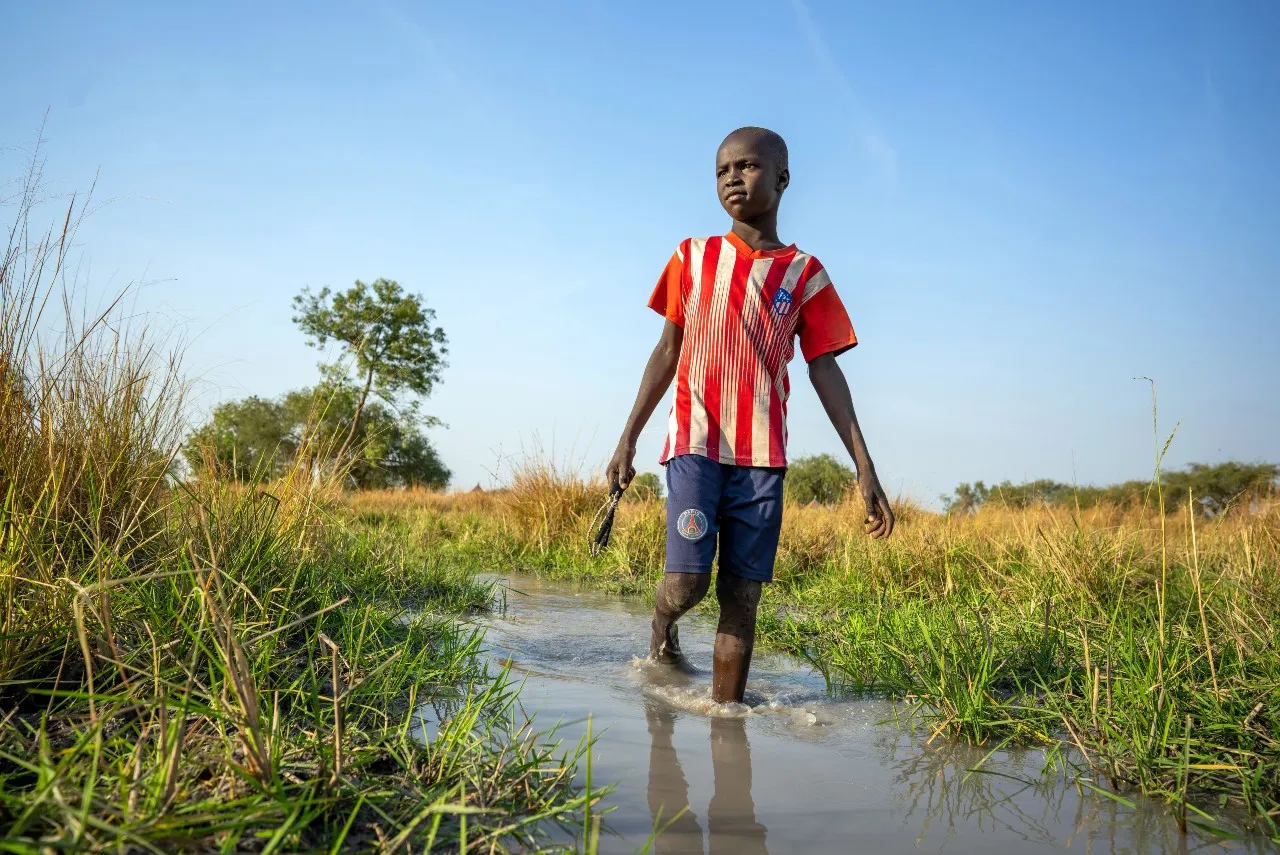The Climate crisis is a child rights crisis
At UNICEF UK, we recognise the climate crisis is urgent and affects everyone—but it disproportionately affects the world’s children.
Rising temperatures, changing weather, floods, and droughts threaten their health, food security, and future. This is why we are committed to achieving net zero greenhouse gas emissions across all our activities by 2050.
Reaching net zero means actively reducing the carbon we produce to protect those most at risk from climate change. By taking action, we can build a safer, healthier world for every child.
Our Environmental Policy
Our Environmental Policy sets out measures to reduce our footprint and use of natural resources, ensuring we take action to help secure a sustainable future.
The strategic pillars are:
- Direct measures to reduce our environmental impact.
- Working with suppliers and partners whose sustainability commitments align with ours.
- Continued work to influence the UK Government to promote environmental sustainability.
- Fundraising with our partners to develop a suite of green programmes.
What we have achieved so far
In 2018, we moved into our headquarters in Stratford, London, a facility designed with sustainability in mind. BREEAM, the world’s leading sustainability assessment framework, certified the building Excellent in New Construction. In December 2023, it achieved a BREEAM in Use Very Good rating.
UNICEF UK’s Environmental Policy was approved in April 2022, laying the foundation for structured environmental governance. In 2023, we partnered with an environmental consultancy to review our operations and launched an internal Green Group alongside a new Social and Environmental Specialist role. By late 2024, we introduced an ISO14001-certified Environmental Management System, showing our commitment to sustainability and ongoing improvement.
A critical element of our sustainability journey has been the measurement and reduction of our carbon footprint. In 2023, we conducted our first carbon footprint assessment and have since expanded its scope to include significant Scope 3 emissions.
Working towards net zero
We are working hard to reduce our greenhouse gas emissions, seeking efficiencies in our operations where possible.
Since 2022, we have reduced our scope 1 and 2 emissions, which relate to emissions that have come directly from us, such as electricity and heating in our offices, by 35%. We are also working on measuring and reducing our scope 3 emissions, which relate to indirect emissions, such as those from suppliers and business travel.
In 2024 we carried out a detailed review of emissions from purchased goods and services. As expected, they make up over 75% of our total emissions, or 1,343 tonnes of CO₂e.
Purchased goods and services, alongside business travel, have the biggest impact on our carbon footprint. So, we are prioritising efforts to reduce our emissions from these areas.
We use our Responsible Sourcing Code of Conduct and Supplier Questionnaire to collect social, ethical, and environmental information from our suppliers. This helps us identify and work with suppliers who share our values and are taking positive steps in these areas.
We also engage with our suppliers on sustainability and net zero. This promotes transparency, meets growing stakeholder expectations, and helps us reduce environmental impact while upholding ethical standards.
In 2024 we introduced our Sustainable Events Policy to guide the creation of environmentally responsible events. Steps we have taken to reduce the impact of our events include:
• Paperless events—using digital signage and online auction platforms
• Offering a plant-based menu at events
• Sharing QR codes for access to reports rather than providing printed copies
• Promoting public transport links to event locations
• Collecting environmental data to help measure the impact of our major events, such as Soccer Aid
Our campaign for climate action
There is mounting evidence of the impact of climate change on children. We use our voice to advocate for change to help achieve our vision of a better world for every child.
Our actions include:
- Campaigning with governments
- Advocating for policy change
- Developing private sector partnerships on climate
- Building meaningful partnerships with our partners and supporters
Climate change is happening now, and we must make changes now. Children around the world, supported by their communities and UNICEF, are acting to create a climate-safe world. Working together, we are finding solutions that transform our world today and tomorrow. Solutions that create a better world for every child.




